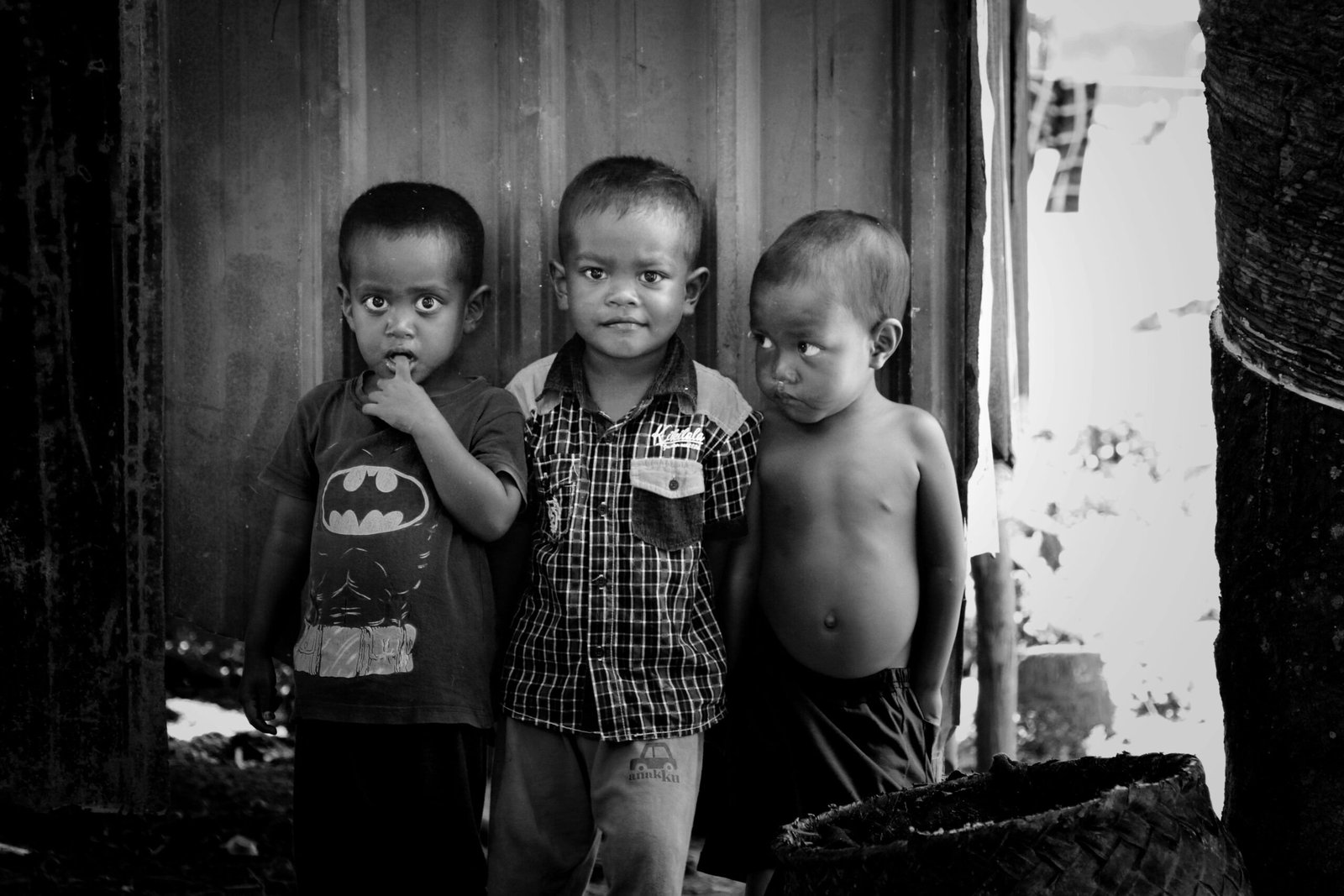Christian Humanitarian Efforts in Global Crisis Zones: A Beacon of Hope

Photo by Edmund Lou on Unsplash
Introduction to Christian Humanitarian Efforts
Christian humanitarian efforts have a rich historical background grounded in the fundamental values of compassion, service, and love for one’s neighbor. These initiatives, often spearheaded by various Christian organizations, aim to respond to human suffering and provide relief in times of crisis. Rooted in the teachings of Jesus Christ, humanitarianism within the Christian context promotes the belief that all individuals deserve dignity, care, and support, regardless of their faith or background. This ethos inspires countless volunteers and organizations to engage actively in humanitarian actions across the globe.
Over the centuries, Christian humanitarianism has evolved significantly. From early charitable works of the Church in the Middle Ages to contemporary relief efforts responding to natural disasters, conflicts, and poverty, these initiatives reflect a sustained commitment to aiding those in need. Prominent organizations, such as World Vision, Compassion International, and Catholic Relief Services, have established themselves as leaders in this field, coordinating extensive relief efforts and development programs that touch countless lives.
As we explore the scope and impact of Christian humanitarian efforts, it becomes clear that these initiatives serve not only to alleviate current suffering but also to embody a vision of a more just and compassionate world. Through goodwill and a commitment to service, Christian organizations rise as beacons of hope within global crisis zones.
Identifying Global Crisis Zones
Global crisis zones are characterized by dire circumstances, which include areas impacted by conflict, natural disasters, extreme poverty, and widespread displacement. These regions experience severe humanitarian challenges, such as disease outbreaks, lack of access to clean water, and food insecurity, often exacerbated by the effects of climate change.
One of the most prominent examples of conflict-driven crises can be found in Syria, where years of civil war have led to immense suffering, with over 6.7 million people displaced internally and millions more across borders. The ongoing violence has resulted in a drastic decline in living conditions, with a significant number of the population lacking access to essential healthcare services.
Natural disasters also contribute to the creation of crisis zones. The recent earthquakes that struck Turkey and Syria in early 2023 highlighted vulnerabilities in infrastructure and emergency response systems. Displacement surged, with many families forced to abandon their homes, leading to a precarious existence in temporary shelters where health risks and food shortages are prevalent.
Poverty-stricken regions, particularly in parts of Sub-Saharan Africa, are grappling with compounded challenges. Countries such as South Sudan, which is frequently affected by climate change, face alarming levels of food insecurity, with estimates indicating that over 7.76 million people are in urgent need of humanitarian assistance. Increased droughts and flooding have disrupted agricultural production, intensifying the urgency of global response efforts.
Moreover, the intersection of crises due to climate change, socioeconomic instability, and geopolitical factors has resulted in a profound impact on vulnerable populations. With millions at risk, concerted efforts must be made to address these humanitarian challenges to alleviate suffering and pave the way for resilience in these stricken areas. The dire conditions present an urgent call for both immediate relief and long-term strategies to stabilize and support these communities.
Key Christian Organizations in Humanitarian Work
Christian organizations have played a pivotal role in addressing humanitarian crises across the globe. Their outreach often encompasses disaster relief, poverty alleviation, and community development. Among these organizations, World Vision, Catholic Relief Services (CRS), and Samaritan’s Purse stand out for their extensive work in crisis zones around the world.
World Vision is a global humanitarian organization dedicated to alleviating poverty and advocating for social justice. With a mission anchored in Christian values, World Vision operates in more than 90 countries, implementing child-focused programs that respond to both immediate needs and long-term development goals. Their core values emphasize the importance of dignity, empowerment, and sustainability, ensuring that programs address the root causes of crises, such as hunger and lack of education.
Catholic Relief Services also has a significant presence in crisis areas, focusing on providing humanitarian assistance in accordance with Catholic teachings. Their outreach spans international disaster response, community development, and peacebuilding. CRS’s initiatives often include providing food and nutrition support, health care, and emergency shelter, responding swiftly to disasters with the aim of restoring dignity and revitalizing communities.
Samaritan’s Purse is another notable Christian organization that offers aid to those in urgent need. Known for its rapid response to disasters, Samaritan’s Purse has developed a variety of programs, including Operation Christmas Child, which provides shoeboxes filled with gifts to children in crisis. Their mission reflects a commitment to serving those affected by conflict and natural disasters, relying on volunteers and donations to deliver essential resources efficiently.
The effectiveness of these organizations can be observed through their comprehensive approaches and the scale of their outreach. While each operates under different models and religious foundations, their shared goal of humanitarian service underscores the critical role faith-based organizations play in providing hope and assistance in some of the world’s most challenging environments.
The Role of Faith-Based Advocacy
Faith-based advocacy plays a significant role in humanitarian efforts, particularly in crisis zones where the need for comprehensive solutions is imperative. Christian organizations, driven by their belief systems, engage actively in policy advocacy to not only alleviate immediate suffering but also to address the fundamental causes of crises. These organizations work diligently to promote peace and influence governmental as well as international policies, showcasing their commitment to social justice through compassionate action.
Christian humanitarian organizations often facilitate dialogue between affected communities and policymakers, ensuring that the voices of marginalized and voiceless populations are heard. By leveraging their faith-based principles, they advocate for policies that prioritize humanitarian assistance, conflict resolution, and development programs that align with the values of dignity and respect for all individuals. This advocacy is crucial in regions where political instability and social injustices exacerbate human suffering, as it can lead to more sustainable and equitable solutions.
Moreover, through strategic partnerships and coalitions, these organizations enhance their influence, pooling resources and expertise to advocate effectively for change. Their efforts are not limited to direct aid but extend to engaging in legislative processes, raising awareness about ongoing crises, and mobilizing communities for grassroots initiatives. By connecting faith with action, they create a robust framework for addressing complex humanitarian issues that often go unnoticed by mainstream discourse.
This approach not only aids those in immediate need but also fosters a culture of accountability and inclusivity, ensuring that all individuals—especially the most vulnerable—benefit from a comprehensive response to crises. By focusing on advocacy, Christian organizations contribute significantly to the transformation of policies that uphold human rights and promote long-lasting peace in crisis-affected areas.
- BPA-FREE, LEAD-FREE & ECO-FRIENDLY – This makes a safe, green, flavor-free, and healthier alternative to plastic bottles…
- DOUBLE WALL VACUUM INSULATED TECHNOLOGY – High tech insulation methods prevent heat transfer to the outer walls of the t…
- EASY TO CLEAN – The large, wide mouth opening allows easy access to the stainless steel surface, eliminating hard to rea…
Volunteerism and Community Involvement
Volunteerism plays a crucial role in the success of Christian humanitarian efforts across the globe. Individuals who choose to engage in these initiatives often find themselves becoming significant contributors to efforts aimed at alleviating suffering in crisis zones. Local churches frequently serve as the launching pads for these outreach programs, providing a structured environment where community members can gather, organize, and mobilize resources. From food drives to educational workshops, churches engage volunteers in various activities that not only benefit the community but also foster a spirit of unity and purpose among participants.
Additionally, many organizations offer mission trips that allow individuals to apply their skills and compassion directly in affected areas. These mission trips can involve medical assistance, construction projects, teaching, or community development initiatives. Volunteers often return from these trips with transformative experiences that underscore the impact of Christian humanitarian work on both the communities being served and the volunteers themselves. Testimonials from participants often highlight personal growth, a deeper faith, and a newfound appreciation for the resilience of those they serve.
Global volunteer programs also provide avenues for involvement that extend beyond local efforts, connecting individuals with international needs. These programs often cater to those who may have a broader vision for helping others and can engage with diverse cultures and challenges. Whether through sponsoring a child, participating in short-term missions, or committing to long-term service, the calling to help is increasingly embraced by many. The dedication of volunteers not only showcases the Christian commitment to service but also acts as a beacon of hope for those experiencing hardship, demonstrating that love and support pass beyond borders.
Challenges Faced by Humanitarian Workers
Humanitarian workers play a crucial role in delivering aid and assistance in global crisis zones. However, their work is fraught with numerous challenges that can significantly impede their ability to provide support effectively. One of the foremost concerns is security. In areas plagued by conflict, natural disasters, or political turmoil, humanitarian workers often find themselves in precarious situations. They may face threats from armed groups, kidnappings, or even violent attacks, necessitating careful risk assessments and often leaving them vulnerable while they strive to aid those in need.
Another significant challenge is political instability, which can create barriers to the delivery of humanitarian assistance. Governments in these regions may have fluctuating policies regarding foreign aid or may be uncooperative in allowing access to those requiring assistance. This can lead to delays in the delivery of critical resources. Additionally, resource limitations further exacerbate these challenges. Humanitarian organizations often operate with insufficient funding, which restricts their capacity to assist effectively. This limitation may result in inadequate supplies of food, medical care, and shelter for affected populations.
Cultural barriers also present challenges for humanitarian workers. Understanding local customs, traditions, and languages is vital for effective communication and building trust with communities. Misunderstandings can lead to distrust and hinder the acceptance of aid, ultimately undermining relief efforts. Beyond these practical obstacles, the emotional and psychological toll of working in high-stress environments can be profound. Many humanitarian workers experience compassion fatigue, secondary trauma, or burnout due to the intense situations they encounter. Therefore, it is essential that organizations establish support systems to ensure the well-being of their workers, allowing them to continue their vital mission in some of the world’s most challenging environments.
Impact and Success Stories
Christian humanitarian efforts have invariably made a significant impact in various crisis zones around the world, offering not only immediate relief but fostering long-term sustainability and resilience within affected communities. One notable example is the work undertaken in South Sudan, where Christian organizations such as World Vision and Samaritan’s Purse have been pivotal in addressing the acute food crisis caused by conflict and climate-related challenges. By implementing community-based agriculture programs, they have empowered local families to cultivate their land, leading to a noticeable improvement in food security.
In addition to agricultural initiatives, the educational programs set up by numerous Christian organizations have provided an invaluable resource for children in these areas. For instance, in Syrian refugee camps, organizations like the United Nations Relief and Works Agency (UNRWA) have collaborated with various Christian groups to establish schools that cater to vulnerable children. These institutions not only offer education but also essential psychological support, helping children cope with the traumas of displacement. The success of these initiatives is reflected in rising school enrollment rates and improved literacy levels among the refugee population.
Moreover, health clinics run by Christian organizations in regions like Haiti have been crucial in enhancing healthcare access. Following the devastating earthquake in 2010, these clinics provided essential medical services to thousands, including maternal and child health care. The partnerships formed between local communities and faith-based organizations have resulted in successful vaccination programs, drastically reducing the incidence of preventable diseases.
These impactful stories illustrate the profound, positive change that can occur when faith communities come together to address urgent needs. By sharing resources, knowledge, and compassion, Christian humanitarian efforts continue to illuminate paths towards recovery and empowerment in some of the world’s most challenging crisis zones.
The Future of Christian Humanitarian Efforts
The landscape of Christian humanitarian efforts is poised for significant transformation as it adapts to the evolving needs of global crisis zones. Emerging trends indicate a shift towards more collaborative approaches, with increased partnerships between faith-based organizations, government agencies, nonprofits, and private sector entities. This multifaceted collaboration aims to enhance the effectiveness and reach of humanitarian responses, ensuring that assistance is both timely and impactful.
Innovative practices are gaining traction within the realm of Christian humanitarian work. One notable trend is the integration of technology into service delivery. Many organizations are leveraging digital tools to improve communication, streamline logistics, and facilitate real-time assessment of needs in crisis areas. Mobile applications and data analytics are driving efficiency, enabling aid workers to respond swiftly to changing conditions on the ground. Additionally, technology facilitates the sharing of information, allowing organizations to coordinate efforts and prevent duplication of services.
In the pursuit of sustainability, Christian humanitarian organizations are increasingly focusing on community empowerment. This approach promotes self-sufficiency, equipping local populations with the skills and resources necessary to rebuild their lives. Initiatives such as vocational training and education aim to develop resilient communities capable of overcoming future challenges. Furthermore, there is a growing emphasis on addressing the root causes of crises, rather than solely responding to immediate needs. This involves advocacy efforts on social justice and policy changes that align with the Christian mandate of caring for the marginalized.
As Christian humanitarian efforts continue to evolve, the role of faith remains central. The commitment to serving those in need reflects core Christian values, providing hope and healing in the darkest of times. The future holds great potential for impactful, collaborative, and innovative humanitarian responses, contributing to a more compassionate world.
How to Support Christian Humanitarian Initiatives
Supporting Christian humanitarian initiatives is an impactful way to contribute to global efforts addressing crises and alleviating suffering. Individuals and organizations can offer support through various avenues, ensuring that the needs of vulnerable populations are met effectively. Each method of involvement amplifies the mission of numerous Christian organizations, embodying the core values of compassion and service.
One of the most direct ways to support these initiatives is through financial contributions. Donations can be made to many reputable Christian humanitarian organizations actively working in crisis zones. These funds are typically used for essential services such as food aid, medical assistance, and shelter for those affected by disasters and conflicts. Donors may also consider sponsoring specific projects or programs that resonate with their values, leading to more targeted and effective assistance.
Advocacy is another vital avenue for supporting Christian humanitarian efforts. Individuals can raise awareness about global crises, encouraging others to join the cause. This can include sharing information on social media platforms, participating in community discussions, or contacting local representatives to promote policies that favor humanitarian aid. Advocacy extends the reach of Christian initiatives, drawing more attention and resources to the pressing issues facing various regions.
Volunteering presents yet another route for support. Many Christian organizations welcome volunteers who bring diverse skills—from medical professionals assisting in clinics to individuals offering logistical help in distribution centers. Furthermore, short-term mission trips enable participants to immerse themselves in humanitarian work while making meaningful connections with the community being served.
Lastly, prayer remains a powerful tool in supporting Christian humanitarian initiatives. Engaging in prayer not only nurtures spiritual well-being but also fosters a sense of solidarity and purpose, uniting individuals in their quest to aid those in dire need. By offering prayer for those suffering and those working tirelessly to help them, supporters reinforce the very foundations of these humanitarian missions.
- Friendly design – With 20oz coffee tumbler, this christian water bottle allows you to hold more drinks. The jesus gift f…
- Ideal choice – Faith Gifts For Women are great choice for you or you can give these inspirational tumbler as christian g…
- Heat retention: If you are looking for gifts for christian women with excellent heat retention, our 20oz tumbler is the …
















Leave a Reply
You must be logged in to post a comment.